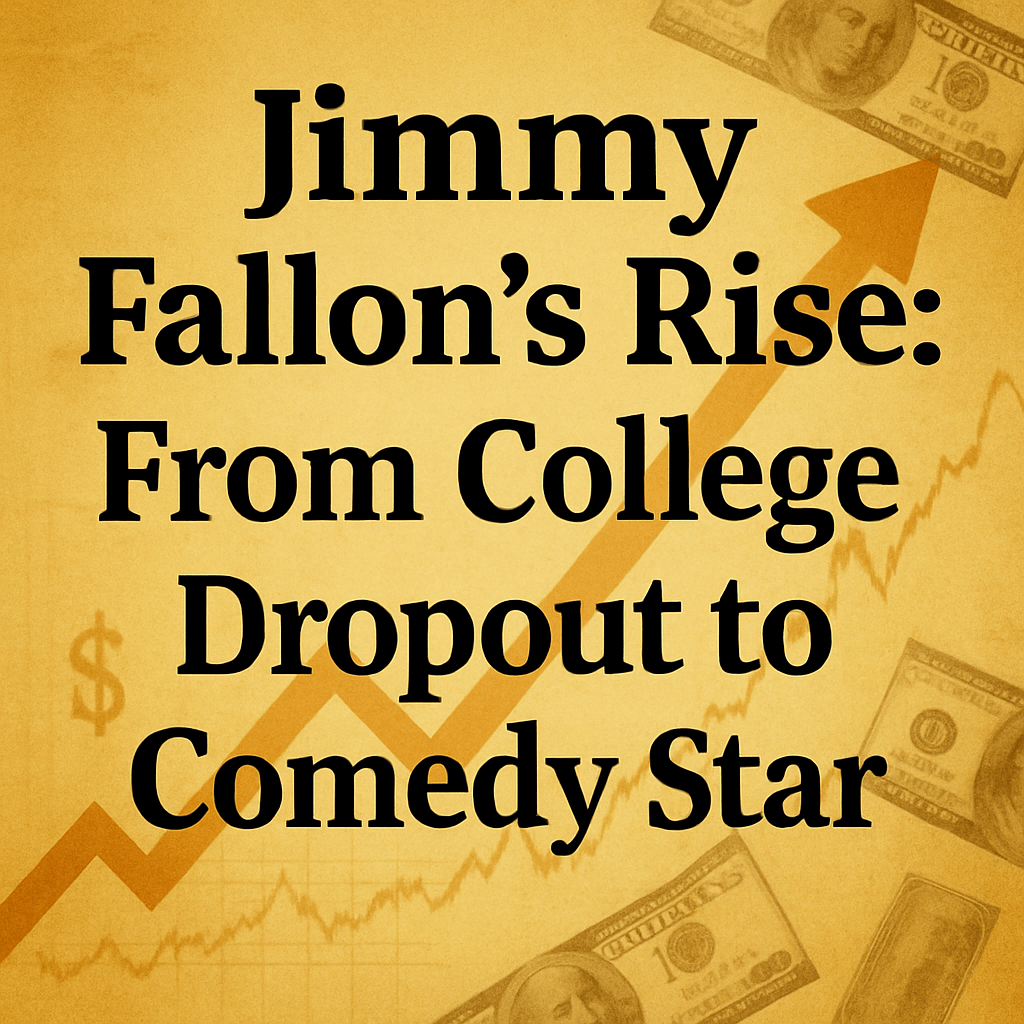Jimmy Fallon’s Rise: From College Dropout to Comedy Star

Multimillionaire television host and comedian Jimmy Fallon always had his sights set on the legendary Saturday Night Live (SNL). By the age of 12, he was already committed to pursuing a career in comedy, leading him to drop out of college during his final semester to chase his dream. For Fallon, this dream came with significant sacrifices, including living without basic comforts and surviving on a meager $7 a day.
The Early Struggles
In the heart of Los Angeles, while working to establish himself in the cutthroat comedy scene, Fallon faced numerous challenges. His living conditions were spartan at best; he often relied on cardboard boxes for furniture, creating makeshift tables by draping sheets over them.
“What’s $7 going to do for you?” Fallon reflected on a recent episode of The Diary of a CEO podcast. “It was the stage time that was priceless. Building an act, developing a persona, and honing my skills were far more valuable than any meal I missed.” The scarcity of food meant he often skipped meals, finding nourishment in the very limited resources available to him.
Networking through Struggle
Fallon’s relentless pursuit wasn’t just about performing; it involved networking with fellow comedians and learning the nuances of comedy. He often performed at open-mic nights and small comedy clubs, seeking every opportunity to get on stage. Many of these venues would offer meals in exchange for performance time, which was crucial for Fallon at that point in his life.
During these early months, Fallon was aware of the high competition. He faced rejections from over 30 movies and television shows, often leading to feelings of self-doubt and discouragement. In his podcast, he emphasized the harsh realities of the entertainment industry: “You’re going to get beat up. But just know that if you can get through it, and keep working, things will open up for you.”
Belief in Dreams and the Influential Mantra
Fallon’s determination was underscored by the ways he kept his dreams alive. On every birthday and during moments of reflection, like tossing a coin into wishing fountains, he would vocalize his ambition to appear on SNL. “Every year, that was my wish,” he stated. This consistent focus and commitment to his goal served as both motivation and manifestation.
- Dropping Out: Fallon left the College of Saint Rose in New York in a bold move to pursue his comedy career.
- First Break: Just three years after dropping out, Fallon landed a spot on SNL, which paved the way for his later fame.
- Current Standing: As of now, his net worth is estimated at $70 million, highlighting his successful transition from struggle to stardom.
The Power of Resilience
Fallon’s journey exemplifies a broader lesson in resilience and the capacity to overcome rejection, a theme echoed across various fields, including finance and business. High-profile leaders, such as David Solomon, CEO of Goldman Sachs, have shared similar narratives of rejection followed by eventual success. Solomon, who faced rejection from his own firm early in his career, advocated for perseverance and self-improvement through varied experiences.
Moreover, Barbara Corcoran, a self-made billionaire and real estate mogul, noted that rejection can serve as a powerful motivator. In a recent social media post, she referred to it as her “lucky charm” when she was initially not selected for Shark Tank.
Conclusion: Continuing the Journey
The trajectory of Fallon’s career reflects not only his personal dedication but also the universal truths surrounding ambition and adversity. He encourages others to see value in persistence, stating, “If you stop trying, you get boring tomorrow.” Today, he works as the host of The Tonight Show, earning an estimated $17 million annually, a testament to his hard work and tenacity.
Final Thoughts
As we reflect on Fallon’s story, it serves as an inspiring reminder of what can be achieved through resilience and an unwavering belief in one’s dreams, a lesson that resonates deeply in today’s competitive landscape across various sectors.